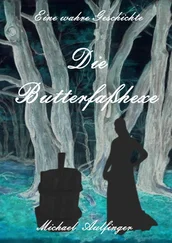In New Helensburgh, on the other hand, Genly was deferential, glad to be of use. He never pushed for his share of any kill toted among us by another, never withheld so much as a wishbone from the importunate little beggars clamoring for a bite of his guinea fowl. You could easily wonder how he stayed alive on so little food. In fact, the vertebrae of his spine locked like broken wing nuts, and his face was more haggard than his comrades’, with a hint of sagittal crest running like an embossed central part in his frowzy hair. While watching the others eat or handing an antelope thighbone over to a youngster, he would sometimes rub a finger along this crest, as if absentmindedly trying to press it flat. An endearing gesture. It made me think that he was trying to assist the hit-and-miss laborings of evolution.
The foremost indignity of Genly’s life sprang from the control that Alfie exerted over his relationship with Emily, his bond partner. Wolves and whippoorwills establish essentially steadfast pair bonds; so did the majority of habilines, but Alfie, unlike all the other Minid males, rotated among a series of pallet partners.
His favorite, as I have mentioned, was Emily, Genly’s “wife.”
Emily was a lanky lady with atavistically prehensile toes and skin the deep blue color of ripe plums.
Frequently she would forsake the bosom of her family to live in Alfie’s windbreak mansion. She did this so often that her allegiance to Genly began to seem a function of Alfie’s whim rather than of her own free will and devotion. She came each time Alfie summoned her and departed each time he dismissed her—so that I could hardly blame her if she no longer knew her own mind.
Not long after my arrival among the Minids, Genly turned to me for solace, the innocent solace arising naturally between people who must make do in the emotional hinterlands of pariah-hood. Almost, he was a male Helen. Not quite, though, because when Emily returned to him, he melted back into the habiline status quo and became just another adult hunter—whereas Helen and I were never that smoothly folded into the aspic of Minid society. Often, then, Genly came to me seeking either comfort or diversion, and I tried to oblige him.
He wanted little enough, really. A chance to fondle or heft certain of my twentieth-century artifacts was enough to transport him from his problems. I gave him, for instance, the penlight. He shone it into his eyes and ears, played its beam across the faces of the children as he had seen me do, poked it into snake holes and warthog burrows, and exhausted its batteries within a mere three days. I took the penlight back and gave him my magnifying glass. He accepted this new plaything, lifted it to his eye, and, after “reading” a few pages of the tiny book I had also handed him, returned both items and stared meaningfully at my pistol.
Startled, I shook my head. “Cain and Abel are still a few centuries up the line, Genly. Murdering Alfie isn’t going to solve your personal problems.” (In retrospect, however, I wonder….) Genly put his hand on the butt of the automatic, forcing me to twist aside from him and spread my fingers across his chest as a friendly caution. Disturbingly, he did not take his eyes from the weapon.
“Veddy dangerous,” I told him. “Pull trigger. Go boom. You recall this effect, no?”
My pre-Phrygian patois did not impress Genly. He raised his eyes and leveled at me a long, disarming stare.
Well, not quite disarming, for I refused to yield the Colt and finally distracted him by jockeying a new set of batteries into the penlight and directing its beam through the thatching of one of the nearby huts.
Alone among the habilines, however, Genly displayed no fear of the pistol. Even though I tried to keep it holstered and had not used it since shooting the copper-colored antelope at the lake, even Helen eyed it warily. Alfie, too, remembered what my.45 had done. I felt sure that his present laissez-faire attitude toward me owed a great deal to enlightened self-interest. He was far from stupid (even if he did not yet understand the benefits of occasionally washing the briefs he had taken from Roosevelt), and insofar as my weapon went, at least, the other Minids had adopted his policy of Leave Well Enough Alone. All, that is, but Genly.
I began to believe—naïvely, as it happened—that a new demonstration of the Colt’s power would deepen the other habilines’ awe of my weapon and convert even the persistent Genly to this respectful attitude. I decided to use the pistol the next time we went stalking on the plains. The fact that the males’ last several hunts had been only middling successes, and that scavenging during this period had not been very profitable, either, gave me an additional excuse for unholstering the.45 again. Genly must learn to respect the Colt, and the Minids, me included, deserved the psychological boost of a kill larger than hyrax, hare, or guinea hen. We had gone a long time without.
The day after my little talk with Genly (while Emily was still shacking up with Alfie), I shot a giant suid—a devastatingly ugly warthog—at almost the full extent of my pistol’s effective range.
During the stalk the habilines closed in on this bygone beast by looking one another to the places where each hunter ought to be. Depending on eye contact and discreet head bobs, they made very little use of hand signals. Eventually, without its ever having seen them, they half encircled the animal in a copse of whistling thorns, convincing me that it would be unnecessary and maybe even counterproductive to break out my.45. Then, however, Fred and Roosevelt, who had been engaged since dawn in a kind of frisky one-upmanship, destroyed the element of surprise by bursting into the copse from the north and flushing the warthog into the open before their fellow hunters had completely closed their dragnet.
Therefore, when the suid, lifting its tail, attempted to vamoose, I planted my feet, took aim, and fired.
The noise scattered a flock of migrating swallows from the whistling thorns and momentarily confounded the Minids, who dropped to the ground or darted to the cover of the shrubbery. Although the fear of loud noises is supposedly innate, a carryover from the automatic fears of our reptilian forebears, Genly merely winced and crouched. A moment later he was at my side, his jittery attention focused not on the dead warthog across the savannah but on the smoking barrel of my gun.
“You’re hopeless,” I told him.
Was it possible that Genly had a hearing impairment? Other than his immunity to noise-induced panic, I had no real evidence for this theory, but life among the habilines would not have been impossible for a deaf person, merely exceedingly difficult. Sight, smell, and the more subtle tactile senses might have compensated for an auditory deficiency. In any case, Genly was not wholly deaf.
“Boom,” I said, holstering the pistol and fastening the snap.
We got the pig home by means of a crude travois that I improvised from branches, my open bush jacket, and a couple of pieces of nylon rope. My marksmanship with the.45 and my ingenuity in assembling the travois—a feat of on-the-spot engineering that I had craftily premeditated—gave the Minids a great deal to think about. You could see their thinkers thinking, whirring toward better mousetraps and self-propelled family vehicles and maybe even unspoken unified field theories. As Genly and I dragged my makeshift sledge and its savory burden back toward New Helensburgh, I felt that Alfie and the others had finally concluded that I, Joshua Kampa, was… a Credit to All Hominidae. I basked in their (probably illusory) esteem and wished that Helen were there to witness my moment of self-justifying triumph. Helen, however, had remained with the womenfolk that morning, probably with the intention of going off later and plundering our populous paradise of tree mice.
Читать дальше



![Ally Carter - [Gallagher Girls 01] I'd Tell You I Love You But Then I'd Have to Kill You](/books/262179/ally-carter-gallagher-girls-01-i-d-tell-you-i-lo-thumb.webp)








